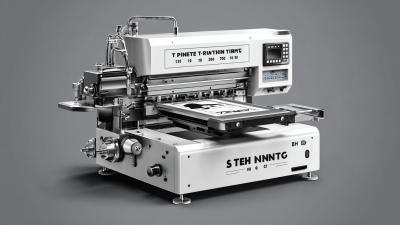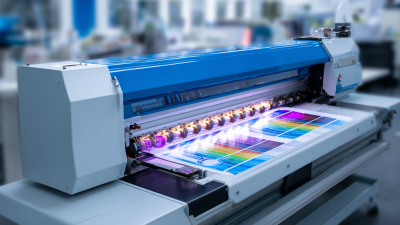In today's booming custom apparel market, the demand for high-quality T shirt printing printer machines has never been greater. According to a report by Grand View Research, the custom T-shirt printing industry is projected to reach a staggering $10 billion by 2025, underscoring the importance of selecting the right equipment for your business. With advancements in printing technology, new machines offer a range of features that can significantly enhance productivity and print quality. Whether you are a startup or an established business looking to expand your offerings, investing in the right T shirt printing printer machine can make all the difference in meeting customer expectations and maximizing profitability. In this blog, we will explore seven essential tips to help you make an informed decision when choosing the best printer machine tailored to your specific needs.
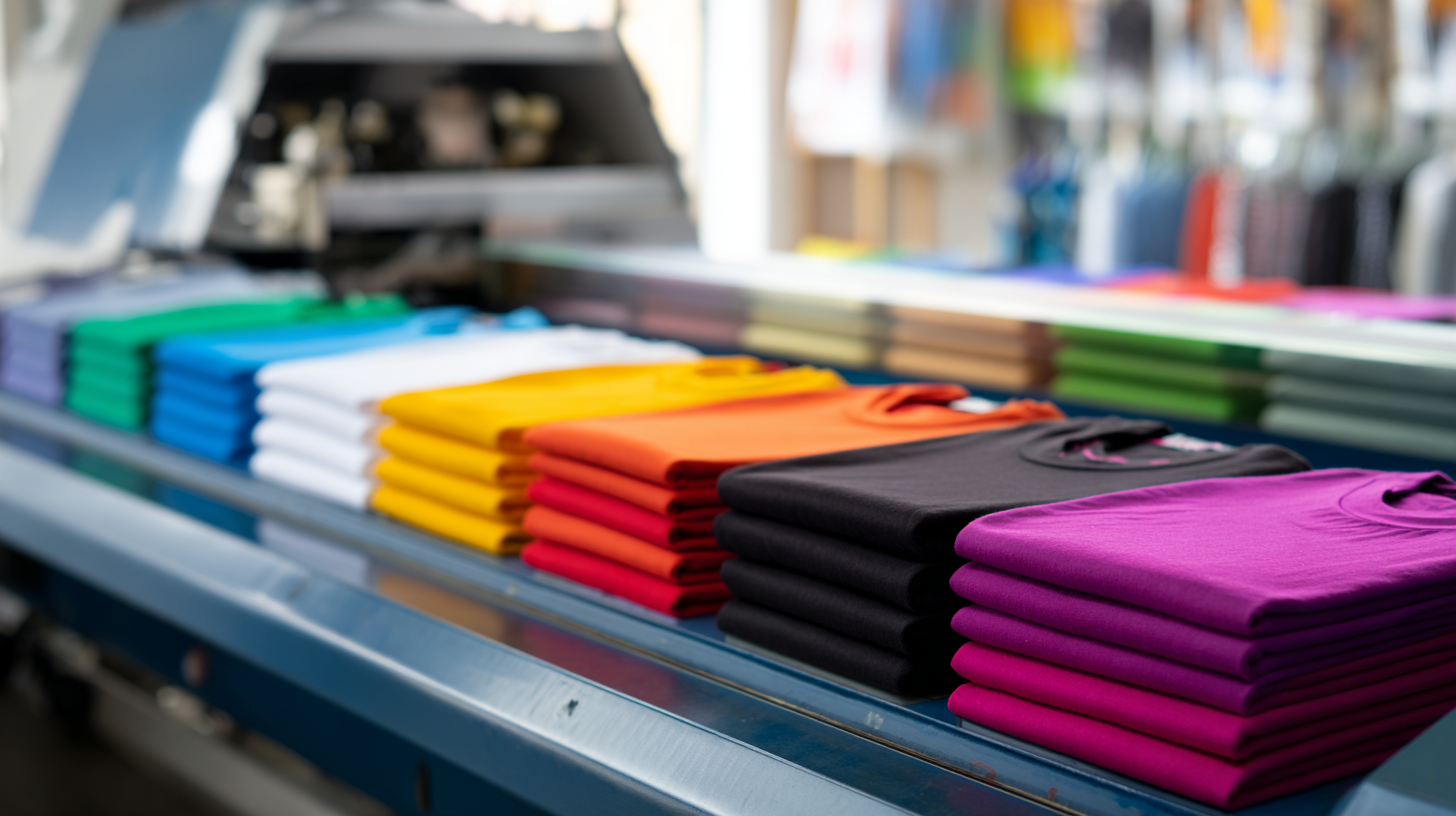
When it comes to choosing the right T-shirt printing machine for your business, understanding the differences between
screen printing and digital printing is essential.
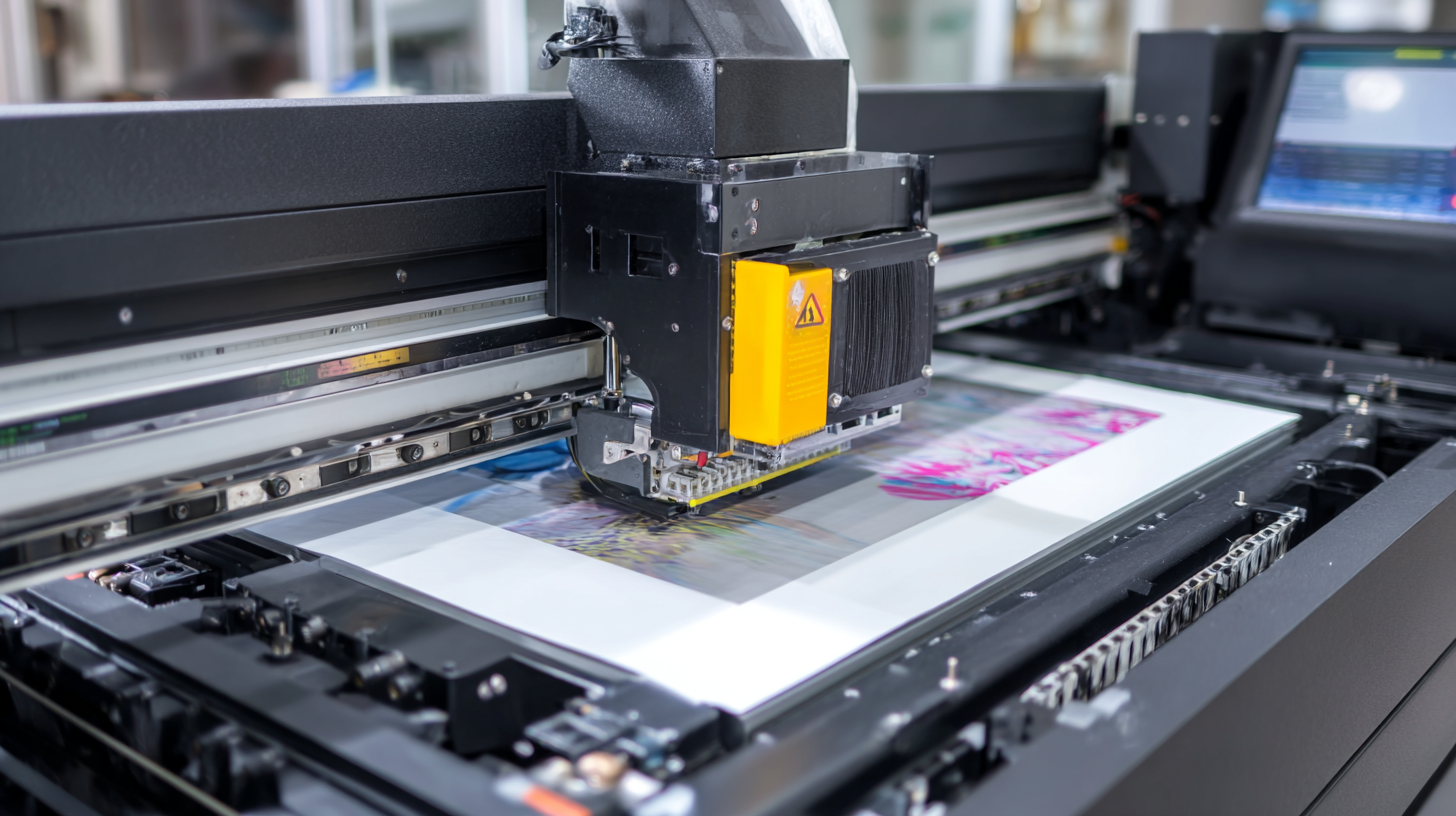 Screen printing is a traditional method that involves creating a stencil and using it to apply ink to fabric.
This method is ideal for large orders with limited colors, as it produces vibrant and durable results.
However, it's less cost-effective for small runs or complex designs due to setup costs.
Screen printing is a traditional method that involves creating a stencil and using it to apply ink to fabric.
This method is ideal for large orders with limited colors, as it produces vibrant and durable results.
However, it's less cost-effective for small runs or complex designs due to setup costs.
On the other hand, digital printing offers more flexibility and is perfect for intricate, detailed images.
This method prints directly onto the fabric using inkjet technology, making it easier to produce custom designs with multiple colors.
As a tip, if your business caters to diverse clientele with varying design needs, investing in a digital printer may provide greater versatility
and adaptability to market demands.
Additionally, consider the print quality and speed of the machine. While screen printing provides excellent quality for bulk orders,
the time investment in setup can slow down production. In contrast, digital printers allow for quicker turnaround times,
making them suitable for on-demand printing. Evaluate your business model and choose a machine that aligns with your
production goals and customer expectations.
When choosing a T-shirt printing machine for your business, assessing
print quality is paramount. One of the key factors
in determining print quality is the DPI (dots per inch) standard. DPI essentially measures how many
individual dots of ink a printer can produce within a one-inch space. A higher DPI often translates to sharper and
more detailed images. For businesses aiming to establish a strong brand identity, opting for printers with a minimum
DPI of 300 is advisable, as this ensures professional-quality prints
that can capture intricate designs and maintain color fidelity.
In addition to DPI, understanding how print quality affects your brand's perception is crucial. Customers associate
print quality with the overall value of a product. A poor-quality T-shirt can damage your brand's reputation and
lead to customer dissatisfaction. On the other hand, high-quality prints can
elevate your designs and make your products more appealing, directly influencing consumer decisions. Therefore,
investing in a printer that guarantees excellent print quality not only enhances customer experience but also
strengthens brand loyalty, ensuring long-term success in the competitive apparel market.
When selecting a T-shirt printing machine, assessing production speed is critical to your business's success. A two-stage study highlights that machine efficiency can significantly impact lead times, with 3D printing technologies boasting production efficiencies that reach up to 97% lead-time reduction. This kind of efficiency is essential for businesses looking to remain competitive in today's fast-paced market.
Tip 1: Look for printers that offer quick setup and turnaround times. Machines that operate at higher speeds not only reduce cycle times but also improve overall productivity, allowing for a quicker response to customer demands.
Moreover, as the manufacturing sector evolves, integrating advanced technologies like AI can further enhance production processes. Reports indicate that AI applications are becoming increasingly vital in optimizing workflows and improving decision-making strategies within additive manufacturing.
Tip 2: Consider the adaptability of the printer to new technologies. A machine that seamlessly integrates with AI or advanced printing techniques can significantly boost operational efficiencies, helping your business to thrive in a rapidly changing landscape.
When considering the investment in a T-shirt printing machine, businesses must prioritize a thorough cost analysis, comparing the initial investment against the long-term returns. According to a research report by Smithers Pira, the global textile printing market is projected to grow at a CAGR of 15.1% from 2021 to 2026, reflecting the increasing demand for custom apparel and the potential profitability of investing in high-quality printing equipment. This growth underscores the importance of selecting a printer that not only meets current demands but can also evolve with changing market trends.
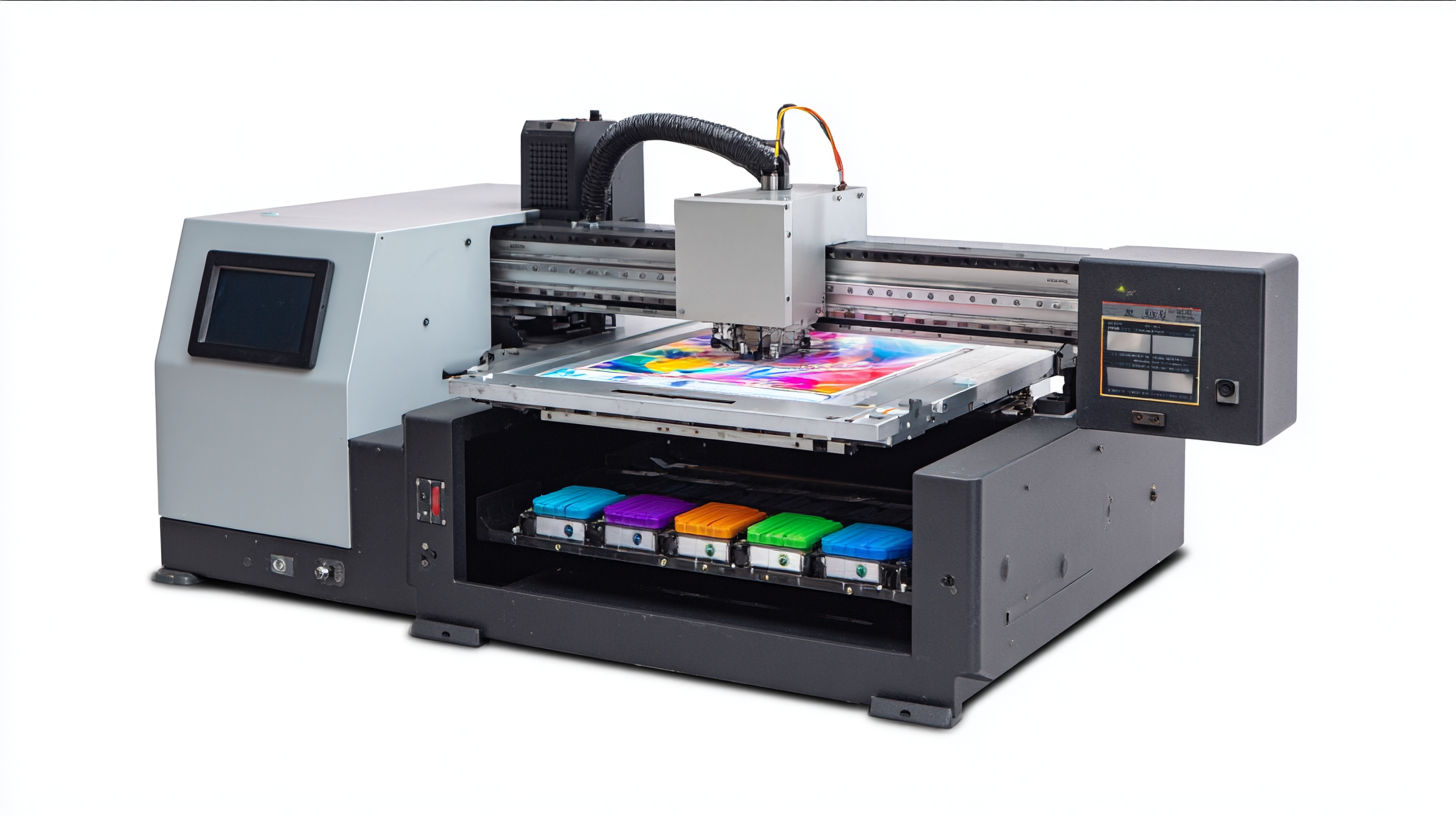
The initial costs of advanced printing machines can range from $15,000 to $200,000, depending on the technology and capabilities. However, the long-term returns can be significantly greater. A study by IBISWorld indicates that businesses typically recoup their investments within the first two years of operation when choosing reliable and efficient models. Moreover, with lower variable costs per print job, businesses can realize higher profit margins on each product. By carefully weighing the initial costs against future profit potentials, businesses can make informed decisions that will position them for sustainable growth in the competitive custom apparel market.
When selecting a t-shirt printing machine for your business, understanding the key features and specifications is crucial for ensuring high performance. First, consider the print head technology; options such as direct-to-garment (DTG) or screen printing each have their unique advantages. DTG printers typically allow for detailed designs and a wider range of colors, making them ideal for custom, on-demand printing. In contrast, screen printing excels in high-volume orders with consistent quality at a lower cost per unit.
Another essential specification to look for is the printer's resolution. A higher DPI (dots per inch) guarantees sharper image quality, which is vital for producing professional-grade t-shirts that stand out in a competitive market. Additionally, consider the machine's speed and production capacity, as these factors will directly affect your business’s efficiency and turnaround times. Choose a printer that meets your production needs without sacrificing quality; a balance of speed and detail will keep your customers satisfied and coming back for more.
